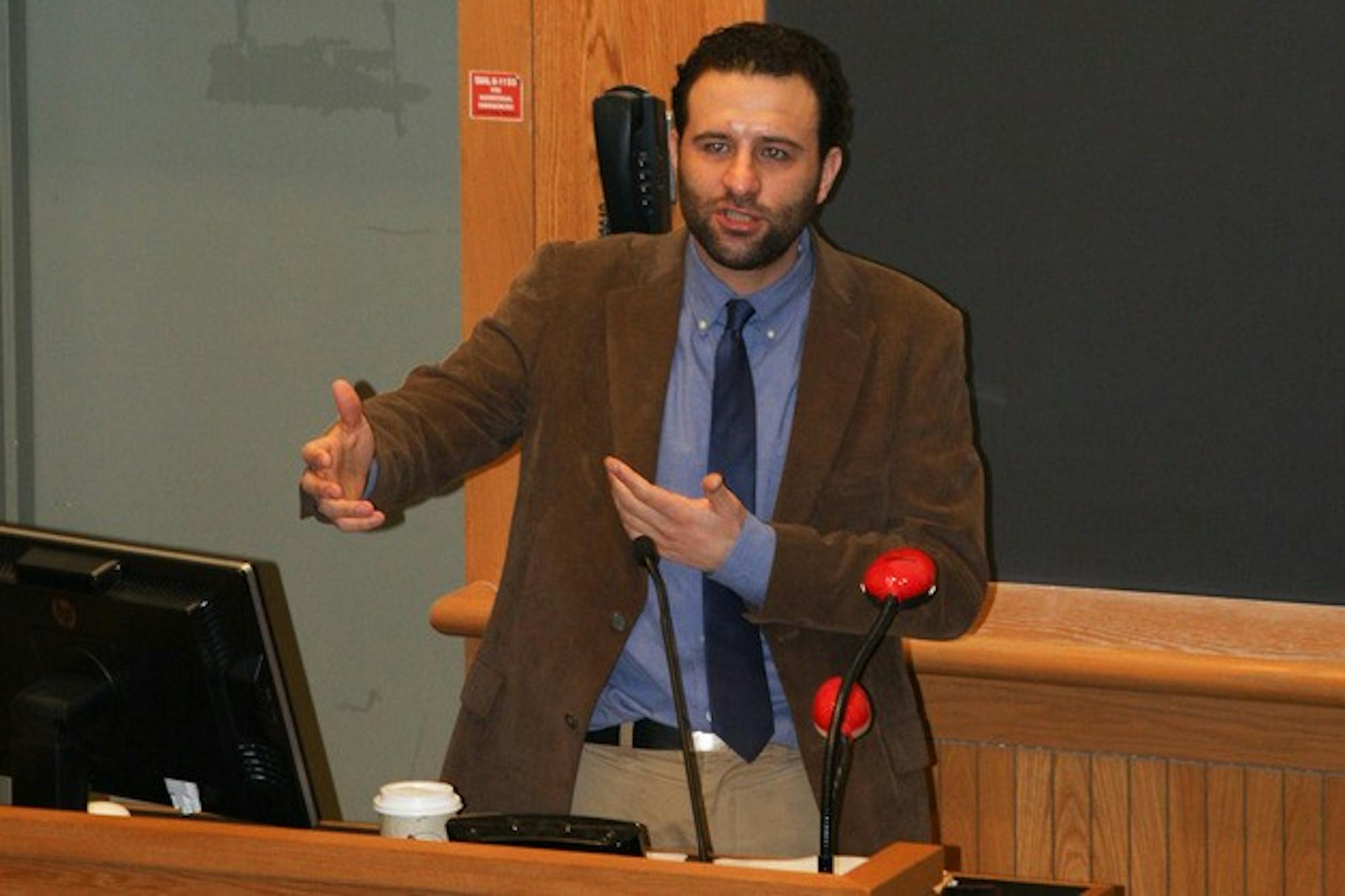Friedman argued that the U.S. military should avoid spreading political ideology in countries with nationalist movements, withdraw from unnecessary alliances and cut the national defense budget.
He said that the U.S. lacked the political wisdom and military power to frequently impose its views on other countries.
"The populations of other countries have their own set ideas," Friedman said. "We often underestimate their ethnic identities, their nationalism."
In past centuries, imperial powers were successful on foreign soil because their opponents lacked the communication technology to support nationalist movements, Friedman said.
The advent of the Internet and satellite TV, however, has allowed nationalism to take shape much more easily.
"Today, everyone in a village will know almost immediately if you kill someone in the neighboring village," Friedman said. "They now have identity groups, they are not just individual tribes and villages."
These identity groups make organized resistance to American state building projects much easier, he said.
Even if the U.S. did overcome the challenges posed by increased foreign nationalism, it should not assume that it possesses the political wisdom to "fix" foreign governments, Friedman said.
"We are very used to spreading our form of government, but we never stop to think," he said.
Friedman also argued that the U.S. should not maintain permanent military alliances.
"Alliances can sometimes be very good," he said. "In World War II, they were very good. But alliances should end when the need for them ends."
The U.S. does not need to defend Europe in an era when it has no realistic enemies, nor does it need to support Japan and South Korea, which are today surrounded by arguably benign interests, according to Friedman.
"This setup is not in the interest of the American taxpayer," he said.
Instead of subsidizing foreign militaries, the U.S. should instead encourage other countries to balance their trade and ideologies, he said.
The U.S. Navy should not patrol international trade in peacetime because other countries have an equal stake in completing trade transactions, according to Friedman. Instead, the U.S. should encourage countries to trade peacefully through diplomacy.
Friedman also discussed his view that Americans should be less concerned about homeland security. Countries considered hostile to the U.S. cannot afford to build a competitive military, so they pose no real threat to the U.S. North Korea's GDP, for instance, is worth a fraction of South Korea's, and Russia's GDP is worth the combined value of those of Spain and Portugal. Countries such as China, who can afford to build up their militaries, are actively seeking trade with the U.S.
"We act like we have terrible enemies, but that's just badly exaggerated," Friedman said.
Opponents of the isolationist strategy claim that decreasing the defense budget would increase unemployment and harm the economy, Friedman said.
While he conceded that cutting the defense budget would decrease the number of jobs available in the defense industry, other sectors of the economy would have the potential to produce more jobs given the same amount of money.
Over time, cuts to the defense budget would stimulate rather than stunt economic growth, he said.
While Washington has ignored proponents of Friedman's viewpoint for many years, policy makers are beginning to take steps moving towards a more isolationist foreign policy strategy.
Every other nation in the world currently employs an isolationist foreign policy strategy, Friedman said.
"I think after the wars we got burned, and it's very sad, but we have to collectively learn like children," he said.
Friedman, a member of the Class of 2000, majored in government at Dartmouth. For the past five years, he has researched the defense budget, defense politics, military services and homeland security at the Cato Institute, a libertarian think tank in Washington, D.C..
Dartmouth College Libertarians president Will Baird '15 invited Friedman to speak at the lecture. Baird said that he looked for a speaker who was well regarded in academia and an expert on foreign policy issues.
Foreign policy is often underappreciated among libertarians and deserves more attention at the College, he said.
The Dartmouth community is active in the ongoing discussion of foreign policy strategies, Friedman said.
Friedman's views, however, are contentious among the faculty.
While government professor William Wohlforth recently published a widely-read article denouncing Friedman's views, Daryl Press, another government professor who served as Friedman's senior thesis advisor, published articles supporting an isolationist strategy.
The majority of the lecture's 15 attendees were members of the Dartmouth College Libertarians, and several said they appreciated his Friedman's perspective.
"Usually you don't see a lot of expert academics who are libertarians," Tanner Hadden '13 said. "I have definitely heard discussions of isolationist views before, but never by a professional. It's really nice to see professionals coming on, dedicating their lives to analyzing these policies."




